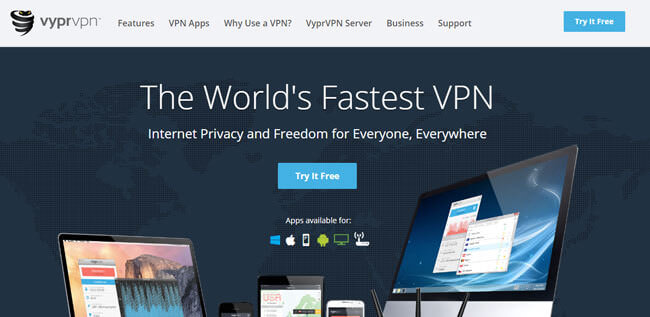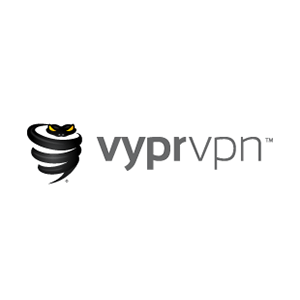How Torrenting Works
Torrent networking first appeared back in 2001 when Python programmer Bram Cohen developed the technology and basically shared it with everyone. P2P networks gained huge popularity in 2005 and accounted for 43-70% of all Internet traffic in 2009. Needless to say, torrenting is now more popular than ever.
People usually use the terms “torrent” and “BitTorrent” synonymously, but they are not synonyms. BitTorrent is a protocol for file transferring that allows you to download large files more smoothly by breaking them down into smaller pieces. A torrent, on the other hand, is simply a file containing metadata about the content you’re downloading.
From this, we can draw a conclusion that the primary purpose of torrenting lies in distributing large media files to private users. The underlying technology makes the entire process much faster, smoother, and more streamlined than simply “moving” large files from servers onto your computer or other devices.
You’ll often read that torrenting works in a decentralized manner, but what does that mean exactly?
 A system is centralized if all its moving parts answer to the same controlling mechanism, a higher power if you wish. For example, every company is a centralized system since all the departments and their managers ultimately answer to the board of directors. Also, every country is centralized since everything within its borders is subject to its legislation.
A system is centralized if all its moving parts answer to the same controlling mechanism, a higher power if you wish. For example, every company is a centralized system since all the departments and their managers ultimately answer to the board of directors. Also, every country is centralized since everything within its borders is subject to its legislation.
P2P networks, on the other hand, do not have a unified controlling body and depend solely on their participants, which makes them completely decentralized. Cryptocurrencies are also a great example of a decentralized phenomenon since their value depends entirely on the market.
Before torrenting became popular, copyrighted materials could only be obtained (without paying for them) on certain sites that would spring up from time to time. However, the authorities would soon discover those sites and shut them down. P2P networks, on the other hand, rely on their participants and have no central server the government can just shut down. This makes torrenting much more resilient to attacks from copyright holders and authorities.
Torrenting Terminology
Before we go any further, let’s go over some of the most common terms used throughout the torrenting process:
- Peers – Torrenting is based on P2P (peer-to-peer) networking. Peers are simply all users involved in filesharing. In other words, YOU become a peer the moment you start downloading something through a torrent file.
- Swarms – Swarms are collections of peers that are downloading & uploading the same torrent.
- Seeders – Seeding is just a term used to denote peers who are uploading something. You can seed files while you’re downloading them and continue to do so after the entire file is downloaded.
- Leechers – A leecher is a derogatory term used for peers who are downloading files without seeding. No one can make you seed, but according to unwritten guidelines, you should strive to upload the same amount of data that you download.
- Indexers – Indexers are just websites that compile torrents. For example, The Pirate Bay is one of the most popular torrent indexers out there.
- Trackers – Trackers are servers that facilitate locating other peers in the network and direct data packets between different peers. You can view trackers as bridges between different users that smooth out data transfers by routing small bits of files between torrent downloaders and uploaders. To put it even more simply, trackers help peers find each other.
- BitTorrent clients – Clients are programs that enable you to transfer files using BitTorrent protocol. These are µTorrents, Vuze, Deluges, and others.
How To Use Torrents
Torrenting might sound complicated, but it’s actually really simple. Let’s take a look at the steps involved in torrenting:
- 1st step: download your torrent client – The first thing you have to do is download and install a torrent client on your chosen device. There are plenty of clients you can use, but if you want our recommendation, go with µTorrent. It’s very easy to use and also compatible with Linux and Mac. Some other options include Transmission, Deluge, and qBitTorrent
- 2nd step: find and download your torrent file – Now that you have a torrent client installed, you can start browsing different torrent indexers and look for the files you want to download. Here, we’ll also explain the difference between torrent files and “magnet links.” The only difference is that you don’t have to download the “.torrent” file if you go for the magnet link. Once you click on the little magnet icon, your torrent client will automatically pop up and start your download.
- 3rd step: add torrents to your client – This is an optional step. If you clicked on the magnet link, you are already downloading your chosen file and don’t really have to read this part. If you downloaded the torrent file, however, you’ll have to add it to the client. You can simply go to Files->Add Torrent and you’re good to go.
Legal Issues With Torrenting
In recent years, torrents have gained a bad rep since people mostly use them to download and distribute copyrighted material. However, if we set piracy aside for a moment, torrenting is completely legal.
The legality of torrenting depends on the material downloaded/uploaded, as well as the adopted legislation in your country. For example, torrenting is considered legal in Switzerland as long as you’re not making a profit. In other words, you can even download copyrighted material as long as you’re not benefiting from it financially. The Netherlands and Spain also allow it to some extent. Mexico is widely considered a true safe haven for torrenting since it has no laws that protect copyrights and intellectual properties.
Having said that, most countries do frown upon using torrents to download and distribute copyrighted materials. Basically, you have nothing to worry about as long as you’re not infringing on any intellectual rights, but let’s face it, that’s what torrenting is mostly about.
 Bottom line, torrenting doesn’t have any legal ramifications in and of itself. The legal troubles begin the moment you start downloading copyrighted material. This means that downloading the latest movies, TV shows, and music without a trustworthy VPN to protect you is just asking for trouble.
Bottom line, torrenting doesn’t have any legal ramifications in and of itself. The legal troubles begin the moment you start downloading copyrighted material. This means that downloading the latest movies, TV shows, and music without a trustworthy VPN to protect you is just asking for trouble.
Few people know this, but torrents can be used for much more than just pirating the latest video and audio content. For example, Blizzard uses a proprietary BitTorrent client to distribute updates for its games, including Diablo 3, World of Warcraft, and StarCraft. Distributing files via BitTorrent takes a significant load off the servers, which is why Wikileaks used it to distribute its data. Also, Linux uses BitTorrent to distribute its ISO disc images.
What Happens If You Get Caught Torrenting?
Without a good VPN to protect you, it is unimaginably easy for copyright holders and ISPs to catch people sharing copyrighted material. First of all, the IP addresses of peers who are either seeding or leaching certain files can be easily accessed through any torrenting client software.
ISPs and copyright holders can only monitor the overall activity on popular files, which will lead them straight to your IP address and, consequently, front door. If you get caught torrenting, you’ll most likely receive a letter from your ISP instructing you to stop doing it. Your ISP might also punish you by throttling down your connection speed. This is not widely admitted, but some ISPs are already throttling filesharing traffic by default.
You can get much more than a simple slap on the wrist and slower Internet connection, though. For example, we have cases from India and the UK where people got sentenced to 3 years in prison and 12 months in custody, respectively. The Digital Economy Act raised the maximum prison sentence for copyright infringement in the UK to 10 years.
The US has its infamous DMCA (Digital Millennium Copyright Act) that prescribes up to 500,000$ in fines + 5 years in jail for first offenders and up to 1,000,000$ in fines + 10 years in jail for repeat offenders. Industry lawyers target copyright infringers in Australia for damages in the amount of 2,000$ per infringement. These trends are slowly taking root in Europe as well, especially Denmark, Austria, and Germany.
How VPNs Protect You While Torrenting
VPNs do a couple of crucial things to keep you safe while torrenting. The best VPNs for torrenting allow you to:
- Hide your real geographic location and IP address
- Encrypt your connection on all devices, giving you an extra layer of security
- Prevent your government, various corporations, your ISP, and other third parties from spying on you
- Access geo-blocked content (Netflix, Hulu, etc.)
- Safely join any P2P network
- Download torrents
Best Torrent Clients To Use With A VPN
Before turning your device into a part of the swarm, you definitely want to find the best BitTorrent client to complement your chosen VPN for torrenting. Torrents are very useful, but you’ll need the right software to use them properly.
Here’s a list of the best BitTorrent clients of 2023:
µTorrent
µTorrent, also spelled as uTorrent, is a very lightweight client bought by the BitTorrent company itself.
It has been around since 2005 and is the most commonly used free client outside of China. The software is very small and allows you to schedule your downloads, but users usually complain that it got a bit too heavy on the advertising over the years.
µTorrent records security problems and allows the company to patch its software to remove potential vulnerabilities.
qBitTorrent
qBitTorrent is one of the best free torrent clients out there with its perfect balance of speed, features, and simplicity. It’s designed to meet the personal needs of pretty much any user while putting as little strain on their CPUs as possible.
The company boasts an integrated media player, search engine, torrent prioritization, and encryption. The client serves no ads and features a decent set of extra tools but offers fewer extensions than other clients in the same category.
Vuze
Vuze (formerly known as Azureus) is one of the most powerful clients on the market. It’s just brimming with features, has a well-designed, clear interface, and can be expanded with plug-ins.
There are two versions of Vuze, the stripped-down Vuze Leap and Vuze Plus. Both of them enable you to download torrents and play all the media you want, but Vuze Plus also gives you the ability to preview files and protects you from viruses.
This client also features IP filtering, bandwidth limiting, and other features one can expect from a pretty robust piece of software for torrenting. If you don’t mind some ads, Vuze is definitely among the first options to consider.
Deluge
Deluge is a highly customizable BitTorrent client that can be as powerful or lean as you want. You can tinker with its vast library of different plug-ins, which allow you to effectively build your customized version of Deluge.
Deluge lets you adjust your speed to match your network conditions, add alphabetical downloading, sort your downloaded files into specific categories, create graphs, integrate with Firefox or Chrome, rename downloads, and schedule everything. It also features cross-platform support.
If a bit more modest interface isn’t a deal-breaker for you, Deluge is a perfect choice for all your torrenting needs.
BitTorrent
People usually wonder why BitTorrent features its own client when it also owns and maintains µTorrent. If we want to get technical, the BitTorrent app is just the rebranded version of µTorrent anyway.
However, the apps might be functionally identical, but there are some essential differences. BitTorrent provides its users with web-based seeding, reviewing, and commenting. It’s also welcome by private trackers that don’t look too fondly upon µTorrent.
Can I Use A Free VPN For Torrenting?
Free VPN services are more likely to introduce new security risks into your torrenting sessions than actually keep you safe and anonymous online. Let’s just stop for a moment and consider how these services survive without charging money for their software. They have to get their funding somehow, right?
It’s pretty simple, they’re using you as a product. They either make your device into a node in their P2P network or actively sell your private data to corporations and online marketers.
Free VPN services for torrenting do sound tempting and attractive, but they’re the absolute bottom when it comes to quality, reliability, and protection. Free BitTorrent clients? Of course! Free torrenting VPNs? No way, no how.
What Makes A Good VPN For Torrenting?
In order to find the best VPNs for torrenting, we applied our rigorous set of ranking criteria to all potential candidates for our list, which ensured only the best of the best got a spot. Here are some of the essential must-haves if you want your VPN to keep you secure and anonymous while you’re torrenting.
P2P Allowed
The first thing you need to know when looking for a VPN for torrenting is whether it allows P2P filesharing in the first place. Some VPNs don’t strictly forbid P2P, but they’ll do everything in their power to prevent users from downloading copyrighted material. This includes everything from limiting your speed to canceling your account. Some of them will actively seek out users who use torrents and ban their accounts. To avoid this, you should look for VPNs that explicitly allow P2P filesharing.
Logging Policy
The best VPNs for torrenting wouldn’t be worthy of that title without strict no-logging policies. Logging begins as a violation of your online privacy and can endanger your security further down the road.
Your VPN service has to protect you from outside attacks and spying attempts but also from itself. Your provider has the power to log your personal information and hand it over when requested to do so by your government. No VPN software can protect you from that unless the company features a bulletproof zero-log policy. If this is the case, your VPN provider won’t have any data to hand over and nobody can make the company give something it doesn’t have.
For full protection, you also want to choose a VPN service based in a country without mandatory data retention laws. If mandatory data retention laws are present, companies HAVE to log your data, so they’ll definitely have something to hand over if ordered to do so.
VPN providers can keep two different types of logs:
- Connection logs – These include your real IP address and the IP address assigned by your VPN, time stamps (start/end of your VPN sessions + duration), amount of data transferred during each session, and more.
- Usage logs – The include downloaded files, list of visited websites, protocols/software (Netflix, Hulu, BitTorrent…), and more.
As you can imagine, usage logs pose a much greater threat to your privacy and security, but you shouldn’t give a second thought to any VPN that logs your data regardless of the nature of the collected information.
Connection Protocols
The best VPNs for torrenting usually feature OpenVPN protocol alongside some other, less attractive and secure options. OpenVPN has everything you’ll ever need to ensure your online security and privacy and protect your sensitive data from prying eyes whether they are coming from criminal circles or the government.
In order to familiarize you with the most popular connection protocols currently offered by renowned VPN services, we’ll go over their most prominent pros and cons:
| OpenVPN | |
|---|---|
| PROs | Can bypass most firewalls, highly configurable, open source, highly secure, compatible with numerous encryption algorithms |
| CONs | Tricky to set up, requires third-party software, needs better support for mobile devices |
| PPTP | |
| PROs | Fast, easy to set up |
| CONs | Outdated, compromised by the NSA |
| L2TP | |
| PROs | Usually considered secure, easy to set up, available on all modern operating systems and devices |
| CONs | Most likely compromised by the NSA, slower than OpenVPN, problematic with restrictive firewalls, deliberately weakened by the NSA |
| SSTP | |
| PROs | Can bypass most firewalls, usually secure (depending on the cipher) |
| CONs | Only works on Windows platforms, Microsoft’s proprietary standard |
| IKEv2 | |
| PROs | Very secure, supports numerous ciphers, stable, easy to set up, faster than SSTP, L2TP, and PPTP, supports Blackberry devices |
| CONs | Uses the easily blocked UDP port 500, not open source, tricky implementation at the server end, limited platform support |
As you can see, OpenVPN definitely offers the highest level of security, but it’s not the fastest connection protocol. PPTP, for example, is much faster than OpenVPN, but we would never recommend using it since it’s outdated, easily cracked, and already compromised by the NSA. L2TP has also been compromised by the NSA and struggles with restricted firewalls. L2TP/IPsec uses pre-shared keys and is often poorly implemented. SSTP is a pretty good choice for torrenting, but keep in mind that it’s entirely owned by Microsoft.
Encryption
The strongest encryption VPNs can offer at this point is AES-256, also known as “bank-grade” or “military-grade” encryption. This encryption is an unbreakable barrier around your online data that keeps it safe from prying eyes that look to interfere with your connection.
Some VPNs for torrenting offer AES-128 encryption, which is, believe it or not, as good as its 256-bit counterpart. AES-128 still hasn’t been successfully cracked, which means it can get the job done without any problems.
AES-256 cipher is most commonly paired with RSA-2048 handshake and SNA-256 authentication, which is all you’ll ever need to remain untouchable to your ISP, government, hackers, and big corporations. RSA-4096 and SHA-512 are definitely attractive options, but they can’t provide you with any more security than the configuration we previously mentioned.
Speed
Speed is one of the essential qualities of the best VPNs for torrenting. Having said that, your security setup can greatly impact the overall speed of your Internet connection.
VPNs will always affect your speed to a degree, so you can only try and mitigate this speed loss by opting for high-quality services. The general rule of thumb is, the higher your security level, the lower the speed.
Secure connection protocols and strong encryption will have a greater impact on your download/upload speed. This might tempt you to sacrifice security for speed, but you should never do it when it comes to torrenting.
Servers
The best VPNs for torrenting must have a wide network of fast and powerful servers spread all over the world rather than a handful of servers scattered across several countries. The locations of all P2P-friendly servers are also essential, so you should always look for VPN services with powerful servers in torrent-friendly countries.
Bandwidth/Server Switching
When it comes to filesharing, being able to download or upload an unlimited amount of data is quite mandatory. Limited bandwidth would ruin your torrenting experience, so you should only opt for VPN services without such limitations.
Unlimited server switching is also an amazing benefit when it comes to P2P filesharing since it enables you to search for the best connection.
Kill Switch
A kill switch is much more important if you’re going to use your VPN for torrenting rather than regular browsing or streaming. A kill switch will, as the name implies, “kill” your Internet connection if your VPN disconnects for whatever reason.
If you disable your kill switch, the moment your VPN fails, your computer will re-establish a regular connection automatically through your ISP, which will expose your real location to all protocols and websites you’re browsing.
A kill switch can be viewed as a tripwire of sorts designed to constantly monitor your connection for any suspicious changes. Once it detects something (a VPN connection drop, for example), it’ll block your computer’s Internet connection until your VPN is back online.
Jurisdiction
We already mentioned the importance of geographic location when it comes to the best VPNs for torrenting.
If your chosen VPN service is registered in a country with mandatory data retention laws, it’ll have to log your personal data and hand it over whenever requested to do so by government agencies. Countries with mandatory data retention laws include Latvia, Italy, Portugal, Malta, Greece, France, Austria, Estonia, and many others.
You should also avoid countries that are members of the so-called “Eye Alliance,” which is a network of developed countries established to spy on their citizens. The Five Eyes Alliance includes the US, Canada, New Zealand, the UK, and Australia. Their reported close partners include Israel, South Korea, Japan, Singapore, and British territories overseas.
The Nine Eyes countries include Denmark, France, the Netherlands, and Norway, plus the members of the Five Eyes. The 14 Eyes alliance also includes Germany, Belgium, Italy, Sweden, and Spain.
Best VPNs For Torrenting
We have chosen the best VPN services for torrenting that satisfy all of our selection criteria. Now it is time to explore our top picks in greater detail and find out which one is the best fit for you. Read the mini-reviews below, discover the key features of our top-rated torrenting VPNs, and decide which one is the right match for your needs.
1. Surfshark
 Surfshark is a relatively young VPN service known for its incredible speeds and top-tier security features. It is also one of the rare companies that allow torrenting on all of its servers and never throttle your connection due to P2P traffic. Its location in the British Virgin Islands is also excellent news for all P2P lovers since this territory has no mandatory data retention laws.
Surfshark is a relatively young VPN service known for its incredible speeds and top-tier security features. It is also one of the rare companies that allow torrenting on all of its servers and never throttle your connection due to P2P traffic. Its location in the British Virgin Islands is also excellent news for all P2P lovers since this territory has no mandatory data retention laws.
For optimal torrenting results, you should use one of the servers suggested on the official website (United States, United Kingdom, Canada, Germany, Italy, Poland, Spain, Norway, Denmark, Luxemburg, Hong Kong, Singapore, Netherlands, Bulgaria, Belgium, Switzerland, Slovakia, Serbia, and Finland). You can use any server, but your traffic WILL be rerouted to the servers in the United States, Netherlands, and Canada, depending on your real location.
Surfshark software is compatible with streaming players like Popcorn Time, VLC, and Ace Player as well as with torrenting apps like uTorrent, Vuze, Transmission, qBitTorrent, and BitTorrent.
Apart from its P2P-friendly policy, Surfshark brings a wide variety of top-of-the-line features to the table. Its default connection protocol is IKEv2, but you can also use OpenVPN. The traffic is encrypted via AES-256 cipher and unexpected disconnects are covered by a reliable automatic killswitch.
Lastly, Surfshark keeps zero activity logs, which means the company never monitors the sites you visit or how you interact with them.
2. NordVPN
 NordVPN is the best VPN for torrenting, launched in 2012 and registered in Panama. It’s very easy to use even for individuals without any previous experience with VPNs.
NordVPN is the best VPN for torrenting, launched in 2012 and registered in Panama. It’s very easy to use even for individuals without any previous experience with VPNs.
NordVPN allows P2P filesharing and even has dedicated servers for torrenting. The company also has a strict no-logging policy.
The available protocols include OpenVPN and IKEv2/IPSec. NordVPN features two layers of encryption, which is something not many VPNs can boast. The encryption in question is, of course, AES-256.
NordVPN currently features 5,100+ servers across 60+ countries and allows up to 6 simultaneous connections. It provides its users with unlimited bandwidth, speed, and server switching.
The software features a very sensitive and reliable kill switch and the company is based in Panama, which is one of the premium locations for VPNs for torrenting. NordVPN also offers a SmartDNS service and even works with Netflix.
3. CyberGhost

CyberGhost is an excellent VPN service for torrenting recently acquired by Crossrider. The company is based in Romania, which is an excellent location for VPN users, guaranteeing no government spying.
The company allows P2P filesharing and features dedicated torrenting servers. It has a strict no logging policy, but it’s not like the Romanian authorities would ask it to hand user data over anyway.
CyberGhost supports OpenVPN, WireGuard and IKEv2 connection protocols and encrypts your traffic with AES-256 encryption.
The company currently features 7,000+ VPN servers across 90+ countries, which is more than enough to ensure proper connectivity anywhere in the world. It allows up to 7 simultaneous connections.
CyberGhost also works in China, isn’t blocked by Netflix, and can be installed on Amazon Firestick or used with Kodi.
4. ExpressVPN
 Known for its P2P-friendly policy, ExpressVPN lets its customers use the entire server network for P2P filesharing. This means that you do not have to worry about finding the right servers for your geographic location or skip your downloads due to overcrowded servers.
Known for its P2P-friendly policy, ExpressVPN lets its customers use the entire server network for P2P filesharing. This means that you do not have to worry about finding the right servers for your geographic location or skip your downloads due to overcrowded servers.
ExpressVPN currently operates more than 3,000 bare metal and virtual servers spread across 90+ countries and it guarantees unlimited bandwidth, speeds, and server switching. Apart from its vast network of VPN server locations, the company also provides Smart DNS, which is ideal for beginners or people who want to hide their originating IP address without encrypting their online traffic.
Speaking of encryption, ExpressVPN scrambles your data with AES-256 cipher, which is virtually unbreakable by computers we have today. This is why it is currently used by banks and military institutions. When it comes to connections protocols, the software covers IKEv2/IPSec, OpenVPN (TCP/UDP), PPTP, and L2TP.
ExpressVPN also comes with split tunneling and perfect forward secrecy, which are features reserved for the best of the best. It also includes a reliable automatic killswitch that prevents your personal data from leaking in case your VPN gets disconnected for whatever reason.
5. VyprVPN
 VyprVPN is lauded as one of the fastest VPN services on the market and it definitely deserves the praises it is getting. The company was launched in 2009 by Golden Frog, a company that first appeared back in 1994, which was basically the dawn of the Internet.
VyprVPN is lauded as one of the fastest VPN services on the market and it definitely deserves the praises it is getting. The company was launched in 2009 by Golden Frog, a company that first appeared back in 1994, which was basically the dawn of the Internet.
When it comes to torrenting and P2P filesharing in general, Golden Frog is pretty explicit about illegal torrents and copyrighted downloads – they are not allowed. However, since the company keeps zero activity logs, it does not really have a reliable mechanism to catch you in the act. Therefore, you can freely use VyprnVPN for torrenting since the company cannot actually enforce its copyright policy.
VyprVPN currently operates more than 700 bare metal and virtual servers around the world, supports a wide array of popular platforms, and allows up to 5 simultaneous connections. Apart from torrenting, it is also an ideal choice for passionate streamers and online gamers. Unlimited bandwidth, speeds, and server switching are guaranteed.
The software supports OpenVPN, PPTP, L2TP/IPSec, and its proprietary connection protocol called the Chameleon. This is a stealth protocol recommended for users in countries with high levels of Internet censorship like China. The traffic is encrypted via AES-256 cipher. There is also a NAT firewall, public Wi-Fi protection, and a reliable auto killswitch.
VyprVPN is a true zero-log VPN and one of the rare providers that hired an independent security company to perform a full audit of the service to make sure no personal data is being logged.




